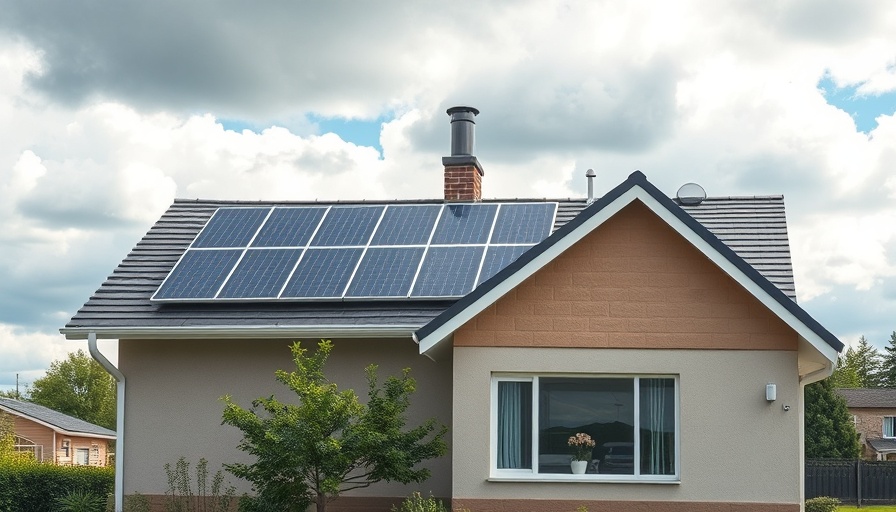
Understanding Boulder’s Opposition to Statewide Solar Permitting Bill
The City of Boulder is taking a stand against Colorado House Bill 25-1096, a legislative endeavor aimed at expediting the process of obtaining residential solar and battery permits throughout the state. While the bill promises a modernized, automated online platform for handling permit applications, Boulder argues that such a move could infringe upon local zoning regulations that protect the character and safety of communities. This article will explore the controversy surrounding this bill, its implications for local governance, and the balancing act between renewable energy initiatives and community oversight.
The Legislative Landscape: What is House Bill 25-1096?
Sponsored by Representatives Lesley Smith and Kyle Brown, House Bill 25-1096 strives to minimize bureaucratic delays associated with solar installations. Currently lauded for possessing one of the fastest permitting processes in the state, Boulder has approved more than 90% of its residential solar permits within merely three days. Castillo, Boulder’s chief policy advisor, expressed that while they support faster permitting, the city’s current system is efficient and tailored to local needs.
Proponents of the bill argue that Colorado as a whole suffers from prolonged solar permitting timelines that obstruct residents’ transitions to renewable energy. Advocates like Micah Parkin of 350 Colorado stress that the legislation is crucial for facilitating a statewide push toward renewables. "We should be doing all we can to promote a more rapid transition to renewables statewide," Parkin noted, highlighting a critical divide between local and state perspectives on solar energy implementation.
Risks and Concerns: Is Local Oversight at Stake?
The contention arises primarily from concerns about local zoning authority. Boulder’s opposition is rooted in fears that the proposed automated platform, dubbed SolarApp, could lead to the issuance of permits bypassing critical reviews. Castillo pointed out that without proper oversight, permits might get approved for installations on unpermitted structures, potentially violating zoning laws related to floodplain regulations, historic districts, and energy efficiency standards.
Such oversights could impose severe financial burdens on homeowners if they end up with improperly installed systems. As technology advances, it is essential to recognize that while rapid permitting can stimulate solar deployment, local customization is crucial for maintaining community standards and environmental sustainability.
Environmental Advocates Speak Out
The opposition from Boulder has sparked a strong reaction from environmental advocates. Many believe that local governments should prioritize streamlining processes to facilitate the use of clean energy, arguing that bureaucratic obstacles deter residents from making the transition to solar. The assertion is that state-level solutions must account for regional disparities to effectively promote renewables.
At a recent Boulder City Council meeting, Parkin emphasized the need for collaborative solutions that do not compromise on local governance. This highlights an intriguing point: the push for renewable energy must harmonize with the complexities of local governance, zoning, and building codes to be truly effective.
Comparative Analysis: Other Municipalities' Automated Permitting
While Boulder stands firm in its position, numerous municipalities across Colorado have already implemented automated permitting systems with noticeable success. For instance, cities like Denver have streamlined their processes without compromising local regulations. The debate thus evolves to why Boulder—which prides itself on responsiveness—opts for a different approach.
Proponents of the bill argue it facilitates a necessary reduction of red tape, echoing sentiments from across numerous states where similar legislation has yielded positive impacts. Local governments like Larimer County remain split, some noting concerns about a lack of flexibility and others highlighting the need for faster responses to facilitate growth in renewable energy.
Looking Ahead: The Future of Solar in Boulder and Colorado
As the Colorado legislature continues to deliberate on HB 25-1096, the dynamics between local jurisdiction and state-level policy remain at the forefront. With 2025 poised to be a pivotal year for renewable energy policy, local governments need to thoroughly assess how best to adopt technology while preserving community resilience.
In conclusion, both local governance and renewable energy advocacy must find common ground to navigate new technologies. Boulder's experience reiterates the importance of community-centric solutions in legislative processes aimed at solving statewide issues. As the debate unfolds, all stakeholders must remain vigilant to ensure a path toward a greener future without sacrificing essential local oversight.
Take Action: Stay informed about the developments surrounding solar permitting in your area. Advocate for policies that strike a balance between local governance and renewable energy accessibility.
 Add Row
Add Row  Add
Add 



Write A Comment